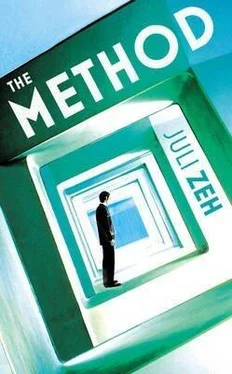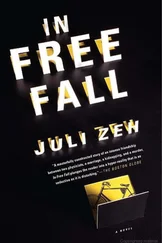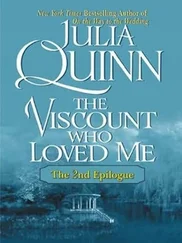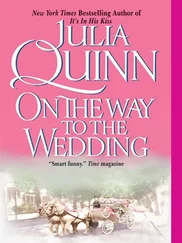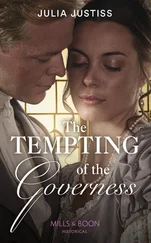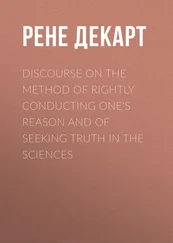‘But—’ says Mia.
‘Objection upheld. I hereby terminate my examination of Frau Holl at the request of her lawyer. It brings the matter to a mercifully swift conclusion.’
‘Kind of you to do my job,’ says Barker.
‘No one asked you to comment,’ says Sophie sharply. Turning back to Rosentreter, she says, ‘The next infraction: abuse of toxic substances. Your plea?’
‘Guilty,’ says Rosentreter.
‘But I don’t see why …’ says Mia.
‘You smoked a cigarette, didn’t you?’ says Rosentreter softly. ‘You admitted to it last week.’
‘Of course,’ says Mia, ‘but I thought you said—’
‘You were adamant you wanted to deal with it yourself — I told you there was only one possible way of avoiding official intervention.’ The counsel for the defence looks apologetically at Sophie. ‘Frau Holl is appealing against the bringing of the charge. We refer Your Honour to the Health Code, Article 28. We’re seeking an exemption.’
‘An exemption!’ Barker slaps his hand against his desk in amusement. ‘Honestly, Rosentreter, couldn’t you talk her out of it?’
The colour has vanished from Sophie’s ruddy cheeks. Sophie doesn’t like herself when she loses her cool. Anger is an unhealthy emotion that runs counter to her natural disposition. Knowing this only adds to her fury.
‘The defendant is apparently of the opinion that her actions are beyond the jurisdiction of this court,’ she says coldly. ‘She also seems to think that the judge is incapable of assessing her personal situation, whereas the judge in question has bent over backwards on her account.’
Mia’s mouth is half open. Right now, the arrangement of her features says nothing about her need for harmony; she simply looks out of her depth. She also looks stupid — stupid in an obstinate way. She looks from one to the other like a dog that can’t quite remember which of them is her master. At last she gestures towards Rosentreter. ‘My lawyer told me …’
‘My client needs peace and quiet,’ says Rosentreter, picking a sheet of paper from his desk. ‘She wants time to reflect. She thinks the interference of the authorities will be detrimental to her recovery.’
‘Your Honour!’ Barker leans across his desk. ‘Surely it’s time for the defendant’s comments to be recorded in her file?’
‘Agreed.’ Sophie turns on her digital recorder and places it on the desk. ‘Herr Rosentreter, on what grounds is your client seeking exemption?’
As soon as Rosentreter starts speaking, his words flash up on the screen. ‘Frau Holl has been placed in an exceptional situation by the system: to wit, her brother was taken from her through the implementation of the Method. She would like to deal with the fallout from the aforementioned incident without the intervention of the Method and its associated institutions, hence the application for exemption in accordance with Article 28.’
‘Is this true?’ asks Sophie, leaning over her lectern. ‘Do you believe your brother died through the implementation of the Method?’
‘Causally speaking, yes,’ says Mia. ‘But it doesn’t mean I …’
‘It doesn’t mean you can cut yourself off from the Method and its public institutions — absolutely right, Frau Holl. Your lawyer will have explained that Article 28 was designed to rectify miscarriages of justice and not—’
‘Your Honour,’ cuts in Barker’s whiny voice, ‘the judge is under no obligation to remedy the failings of the defence.’
Sophie erupts. ‘I’ve had enough of your fault-finding,’ she bellows. ‘This isn’t a university canteen, where you can show off. Official caution in accordance with Article 12 — otherwise known as contempt of court.’
The gavel comes down hard on the desk. Sophie lays it aside in disgust.
‘The defendant’s application for exemption is rejected,’ she says, barely keeping her composure. ‘I won’t have my courtroom treated like a circus. The defendant is found guilty of abusing toxic substances and is sentenced to a two-year suspended term. I trust the penalty meets with the prosecution’s approval.’
‘In every respect,’ says Barker through gritted teeth.
‘Excellent. Incidentally, I’d like to remind Frau Holl that Method Defence is automatically informed of any attempt to apply for an exemption through recourse to Article 28. The court is now closed.’
‘THERE WAS A line from a song in the good old days,’ says the ideal inamorata. ‘ Which side are you on? You should adopt it as your anthem.’
It is probably somewhere approaching midday, maybe a little later, although at this point the hour is of little interest to those in the room. There is a springtime warmth to the day. The door to the roof garden is open, admitting balmy air. The self-satisfied buzzing of a bee can be heard from the flowerpots. Rosentreter watches from the doorway as the insect flits between the artificial petals, which exude a synthetic aroma known as ‘primrose’.
Is Mia’s lawyer in the apartment by invitation? Not really: Mia’s lawyer is in her apartment because he walked her home. They were on their way out of the courthouse when Mia stopped on the steps and stared at her surroundings, as if seeing the city with new eyes. And while she stared, she talked to herself: she had slowed down, she said, to a tenth of her usual speed, and that was the reason why the days were passing ten times faster, cyclists were going ten times faster, and people were talking at ten times their usual speed, so that she, Mia, could no longer make sense of anything. The brain, she said, was just a muscle, like any other. Rosentreter stepped in before she drew attention to herself by sitting on the stairs. He looked up her address in his file and walked her home.
Right now Mia is forcing down a couple of brightly coloured pills. Her eyes are closed. Modern medicine provides an answer to every existential problem; any remaining uncertainty can be clarified by only one man — Rosentreter. His lanky frame is slightly stooped, as if he were trying to make himself shorter. He runs his hand through his floppy hair for the hundredth time.
‘Happy now?’ asks Mia.
‘I’ve been admiring the view.’ Rosentreter scatters a few loose hairs and turns to face Mia.
‘I’m not interested in the view,’ she says. ‘I want to know if you like playing the torturer.’
‘Interesting you should mention torture. It may surprise you to learn that the introduction of torture was a milestone in the development of the modern criminal trial.’
‘Who does he take me for?’ says Mia to the ideal inamorata. ‘He’s as bad as the rest.’
‘I like him better than the other one,’ says the ideal inamorata. ‘There’s something about his eyes — like a small boy in a toyshop.’
‘This man,’ says Mia loudly, pointing at Rosentreter, ‘sabotaged my case.’
‘I know the business with torture sounds absurd,’ says Rosentreter, raising a hand to his chin as if he were giving a seminar on legal history, ‘but it’s absolutely true. It followed the abolition of trial by ordeal — judicium Dei . Thereafter man, not God, was supposed to sit in judgement over humankind. But how could ordinary humans without divine knowledge be relied upon to divine the truth? Confession was the only reliable indicator of guilt. Sadly, defendants couldn’t be counted upon to confess, so the system came up with a means of …’ Rosentreter smiles to himself ‘… probing their conscience.’
‘If you don’t mind,’ says Mia, ‘I’d like to get back to the workings of my case. That’s enough of a torture for me.’
Читать дальше
